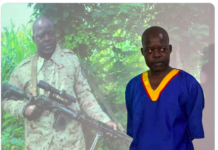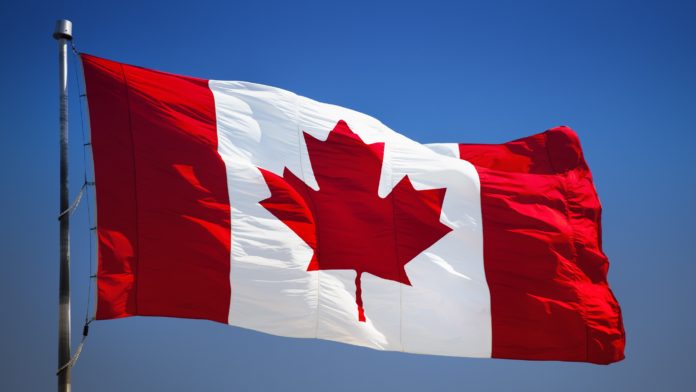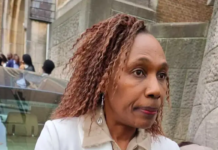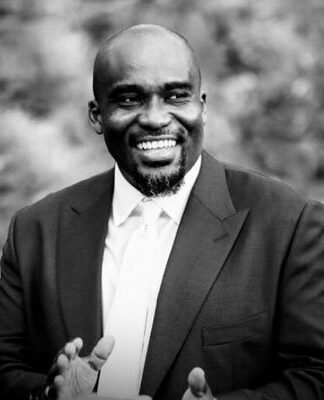From reliable sources, Canada will seek a seat in the 2020 election at the United Nations Security Council and its eventual two-year term begins in 2021. The maple country will hold this seat on the Security Council in Ireland and Norway. San Marino, who was on the run until the announcement of the Canadian bid, decided to withdraw in support of Canada. What is the security council? the United Nations Security Council is the executive organ of the United Nations (UN). It is defined as having “the primary responsibility for the maintenance of peace and international security” according to the United Nations Charter and for that it has specific powers such as peacekeeping, the establishment of international sanctions and the establishment of international sanctions. military intervention. Certain decisions, called resolutions, of the Security Council are binding and “the Members of the Organization agree to accept and implement the decisions of the Security Council”. It meets at the United Nations headquarters in New York after serving in various capitals, such as Paris and Addis Ababa. Its members must be present at all times, since the Council can be convened at any time, particularly in the event of an exceptional crisis, which was not permitted by the League of Nations Charter. The Security Council is composed of fifteen members: five permanents veto-qualified (China, United States, France, United Kingdom, Russia) and ten elected for a two-year term (renewed by half each year). Would Canada deserve such trust?
The colonial history of North America or the “genocide” of natives or First Nations
We cannot talk about Canada and the United States without mentioning the American Indians who were the first occupants of this vast territory rich in natural resources. They are now called aboriginal peoples, native Americans or first nations. They are divided into 3 major groups that are Indian, Inuit and Métis. These Aboriginal peoples occupied the territory we now call Canada and all the rest of America for centuries before the arrival of European settlers, and they have a rich and proud history of cultural and spiritual traditions.
The colonial history of present-day North America began shortly after the discovery of the New World by Europeans (Christopher Columbus in 1492). The current US territory is rapidly becoming an international issue: the major Western colonial powers embark on exploration and conquest of the New World and build vast colonial empires that most often end up being absorbed militarily and politically by other empires or by becoming independent from their metropolis after several centuries of domination of its colonies. The most famous example of this case is the independence of the Thirteen British colonies that became the United States. In turn, they began to colonize the territories of the Wild West (conquest of the West) and then to expand overseas (at the expense of Spain).
According to Lemkin, colonization was inherently “inherently genocidal”. He saw this genocide as a two-step process, the first being the destruction of the way of life of the indigenous population. In the second stage, newcomers impose their way of life on the minority or majority group. According to David Maybury-Lewis, the imperial and colonial forms of genocide are carried out in two ways, either by the desire to clean up territories of their original inhabitants in order to exploit their resources or to make colonies of them, or by the intermediary of the enlistment of the natives. The expansion of various European colonial powers, such as the Spanish and British empires, and the creation of nation-states on indigenous territory, are often the cause of acts of genocide and violence against indigenous groups in America. Australia, Africa and Asia.
But a cycle of social, physical and cultural destruction began the day they were imposed on European culture and values, dispossessed of their lands, eradicated and subjected to foreign modes of governance. The repercussions of all these traumas continue to affect indigenous populations today. The majority of the issues facing Aboriginal communities stem from a deep sense of loss of identity. Several generations of demoralization have followed a cultural genocide (the systematic destruction of a culture). Faced with oppression, widespread poverty and violence, First Nations, Métis, Inuit and Aboriginal peoples across Canada continue to fight for their rights by challenging the systems and attitudes that have perpetuated.
The current situation of Aboriginal people or First Nations in Canada
In a report published on January 14, 2017, the Coroner’s Office of the Province of Quebec challenges Canada’s aboriginal reserve system as an “apartheid regime”. This report follows a series of five suicides in 2015 in an Innu community of Uashat Mak Mani-Utenam in the northeast of the province. “Avoidable” suicides, according to coroner Bernard Lefrancois, in charge of investigations into violent deaths. The “individual ill-being of the five people concerned” is part of the “basic fabric of the collective malaise experienced by the whole of a community”, explains the author of the report. It is time to put an end to this system that has been in place for one hundred and fifty years or more. The Indian Act, which is an archaic and obsolete law, establishes two kinds of citizens, the aboriginal and the non-aboriginal, says Mr Lefrancois. They were camped in reserves in which they cannot develop or emancipate themselves. The message that is continually sent to them is: you are different and incapable, alert the coroner. The survey also found that Aboriginals are generally more affected by unemployment, poverty, alcohol and drug use, crime, spousal violence, dropping out, child placement and suicide. than other communities. The suicide rate for Aboriginal people is twice the Canadian national average.
UN report sinks Canada.
A UN report agrees and calls Canada a crisis country. According to this report, Canada is facing a “crisis in the situation of the country’s indigenous peoples” because of the “historical suppression of [their] rights”, the effects of which they are still suffering. After a nine-day visit to Canada, the report of the UN Special Rapporteur on the Rights of Indigenous Peoples is harsh.
Overpopulation in poor housing in the country’s reserves; an “alarming” suicide rate that is five times higher than among young Canadians who are not of Aboriginal descent; a risk eight times higher for Aboriginal women to be murdered than their non-Aboriginal counterparts; Disproportionately high incarceration rate: “Canada consistently ranks among the top countries for its human development index, yet despite wealth and prosperity, Aboriginal peoples live in conditions comparable to those low in this ranking and where poverty abounds, “said Anaya. The basic problem, says the special rapporteur, is that First Nations have a deep lack of confidence in governments, which may be jeopardized by the education bill promised by Ottawa this fall.
Canadian prisons
The numbers indicate that in 2016-17, Aboriginal youth accounted for 46% of all minor entries in correctional services in the country based on Statistics Canada data. This data is unacceptable by Manitoba activist Michael Redhead Champagne, who sees it as evidence of systemic racism, while Aboriginal people make up only 8% of the Canadian minor population. 30% of Canadian inmates are Aboriginal, almost 10% more than in 2007, while they represent only 4.1% of the country’s population, according to Statistics Canada. “These numbers do not surprise me,” says Winnipeg activist Michael Redhead Champagne, “I see aboriginal and non-aboriginal people committing the same crimes, but [they] do not spend as much time in prison. ”
The number of blacks now accounts for nearly 10% of the Canadian prison population, while they represent less than 3% of the civilian population. In fact, the Canada Border Services Agency has resumed the expulsion of Haitians to their country of origin. In the House of Commons, Friday afternoon, the Bloc member. Gabriel Ste-Marie has asked the Liberal government to commit to suspending referrals to Haiti until the situation is safe, a suggestion the government has not endorsed.
What will be the best candidate for the post of UN Security Council in 2020?
Thus, it is safe to say that the chances are not equal for all citizens of the maple country. There are currently 3 kinds of citizens in Canada; aboriginals, blacks and others. Aboriginals and blacks are the biggest losers in the Canadian system. It is not for nothing that this vast country, rich in resources of all sorts and struggling to get out of all kinds of difficulties, is called an “apartheid” country. In addition, many people question the sincerity of Canadian governments in honoring their international commitments such as the fight for poverty and others. What will be the final cost of the candidacy until Canada’s election to the UN Security Council? according to some sources, the cost could be as high as $ 2 billion or more. Apparently the dictatorship countries do not hesitate to make their votes against money. And they vote for the highest bidder. The choice of other countries is dictated by various interests or sympathies. In any case, it is a lot of money to spend especially for the Canadian taxpayer already panicked and who has recently seen the bank of his country increase its key rate twice in a row. This country has just participated in a so-called UN peace mission in Mali alongside France, which is there to steal the resources that belong to the Malian people. The Justin Trudeau government should do more to provide everyone with a good government based on equity and equal opportunity, which is not the case right now. What about the other candidate countries Norway and Ireland? We rarely hear about these countries internationally because their behavior is exemplary unlike Canada, which still drags a lot of dirty pans. What will be the best? I will try to answer it soon.
Gondiel ka
Montreal, Canada
chronicler
Expertise Relation Africa Canada































































